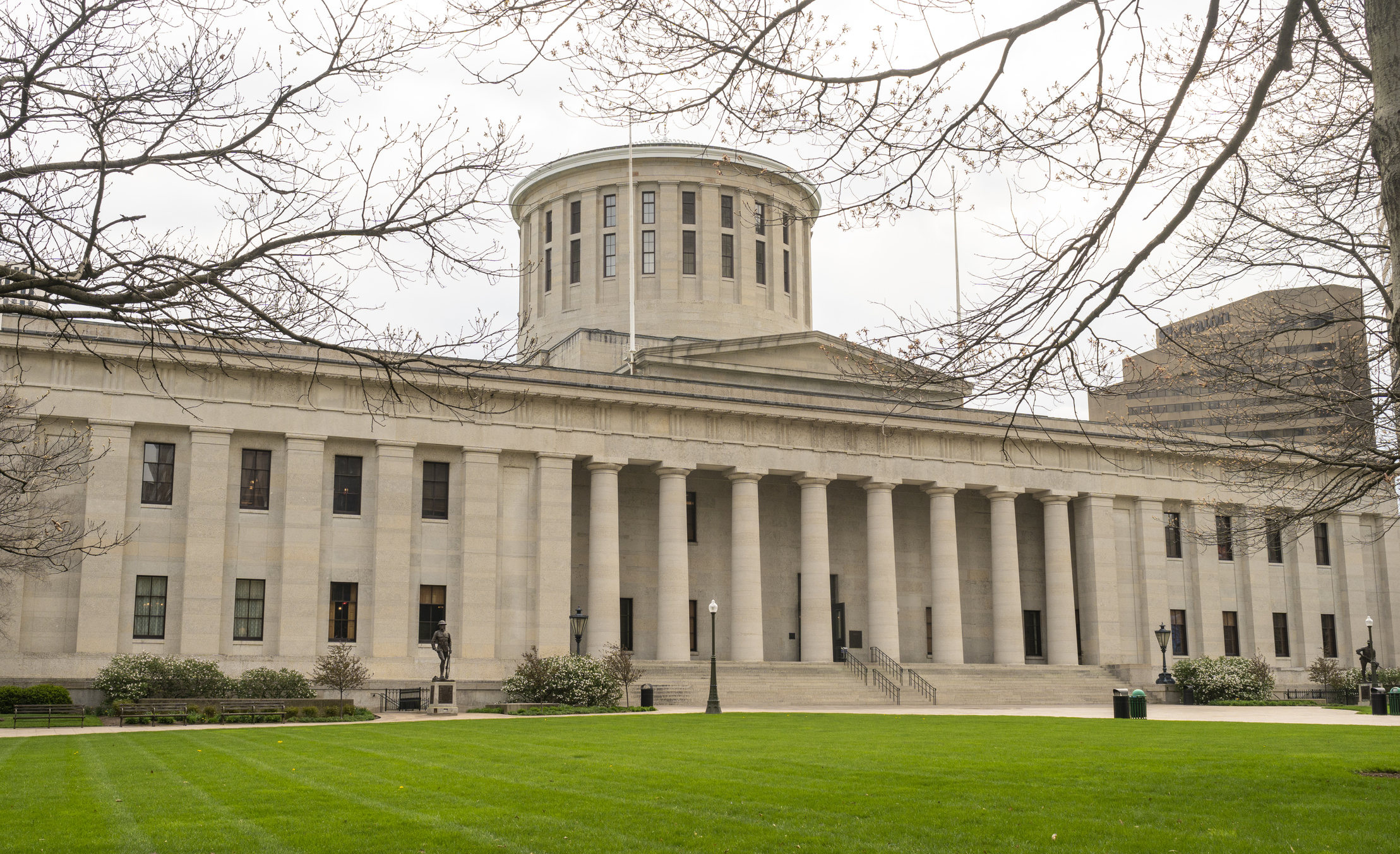
If you attend a college-level earth science class in Ohio in the coming years, you might learn about how climate change is causing heat waves, flooding, and record storms, and how humanity has a shrinking window to drastically cut emissions and forestall the worst effects. But your instructor could also be forced to spend a big chunk of time talking about how a few largely discredited researchers and fossil-fuel funded lobbyists don’t think there’s really much of an issue.
That’s because just last week, the state senate began debating the Ohio Higher Education Enhancement Act, which would tie the hands of instructors at colleges and universities from teaching effectively on subjects the state legislature has labeled as “controversial,” including climate change. Those institutions would have to guarantee that they’re “encourag[ing] students to reach their own conclusions,” on such matters, which also include subjects like abortion rights. The schools are also obligated to not “seek to inculcate any social, political, or religious point of view” on students. Higher education institutions would also be barred from implementing sustainability initiatives. Diversity or equity programs would also be banned.
Classroom politics have been at the center of an intense national discussion for years, with much of that controversy focusing on sexual orientation, gender identity, race, and American history. Climate science is sometimes thrown into the debate as well. Idaho, for instance, went through the legislative equivalent of a knock down drag out fight over a proposal to include climate change in the state’s academic standards back in 2019. Those tensions have recently been inflamed by Florida Governor Ron DeSantis’s increasingly zealous efforts to remake the state’s school systems and universities in opposition to what conservatives have termed “wokeness.” Now, the Ohio education bill may signal that that renewed conservative education push has extended to climate science as well, with politicians seeking to insert proven falsehoods into higher-education science courses.
That conservative crusade comes at a time of increased attention among educators and progressive politicians to get more climate science into classrooms in order to help children understand the accelerating changes in the world around them. New Jersey became the first state to legislate climate change into its learning standards back in 2020, followed by Connecticut last year. New Jersey’s standards went into effect last fall, with educators introducing children to climate change starting in kindergarten, and in both science classes and less obvious subjects, like art and physical education. Supporters of the policy point to studies that show how climate education can inculcate sustainable habits, and even help increase parental engagement on the issue.
Many schools mention climate change in science class, but absent efforts like those in New Jersey the curriculum can fall woefully behind the current science and state of urgency. On a recent visit to several D.C.-area charter schools, for instance, a colleague of mine was surprised by how little climate awareness was part of the curriculum. She asked one class of 11th graders if any of them were worried about how climate change would impact their own lives; only one hand went up, and that student was more focused on what would happen if the polar ice caps melted 100 years from now. A few students in a 9th grade class had heard of Greta Thunberg, but weren’t exactly sure what she stood for. When prompted, a few other 11th graders in another school acknowledged that heat waves had gotten worse in the D.C. area over the past few years, likely because of climate change, but the solution, they said, was more air conditioning. Other classes were more informed, but it appeared to be due to the efforts of individual teachers, not the curriculum.
Ohio’s law proposes to go entirely in the opposite direction, preventing educators from teaching the established facts of climate change as such, and forcing them to add misleading arguments from climate change skeptics. Supporters say the measure is about championing intellectual diversity on an important subject. “What I think is controversial is different views that exist out there about the extent of the climate change and the solutions to try to alter climate change,” said Republican state senator Jerry Cirino, the bill’s primary sponsor, speaking with Energy News Network. That would seem to mean that educators must validate the perspective that climate change is a minimal threat, or that there’s not much we can do about it, both of which are untrue.
Classroom debates in which students are encouraged to argue and draw their own conclusions about big issues are an important part of education. But schools and colleges are also places for instruction, and it’s the job of teachers and educators to determine which topics are places to indulge multiple contrasting views, and which are places for hard facts. Climate science is well-established, but by framing the field’s basic concepts as a topic worthy of spirited debate, those legislators are really promoting false fossil fuel industry talking points—that wrongly say humans aren’t causing the warming, or that the changes won’t necessarily be that bad—and putting them on the same level as actual science in the minds of those students. That might serve the interests of a few hard-line state legislators who haven’t been keeping up with the most recent U.N. climate reports. But it’s a profound disservice to the students who will face the realities of a warming world in the years ahead.
A version of this story also appears in the Climate is Everything newsletter. To sign up, click here.
More Must-Reads from TIME
- Cybersecurity Experts Are Sounding the Alarm on DOGE
- Meet the 2025 Women of the Year
- The Harsh Truth About Disability Inclusion
- Why Do More Young Adults Have Cancer?
- Colman Domingo Leads With Radical Love
- How to Get Better at Doing Things Alone
- Michelle Zauner Stares Down the Darkness
Write to Alejandro de la Garza at alejandro.delagarza@time.com